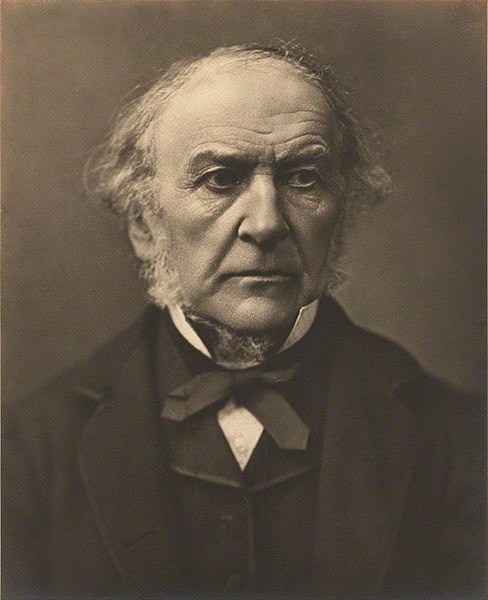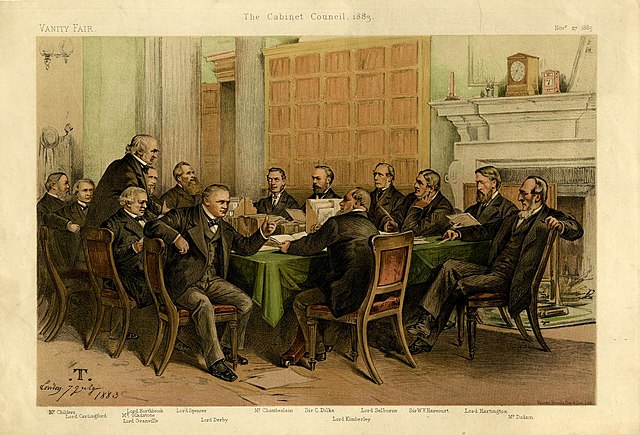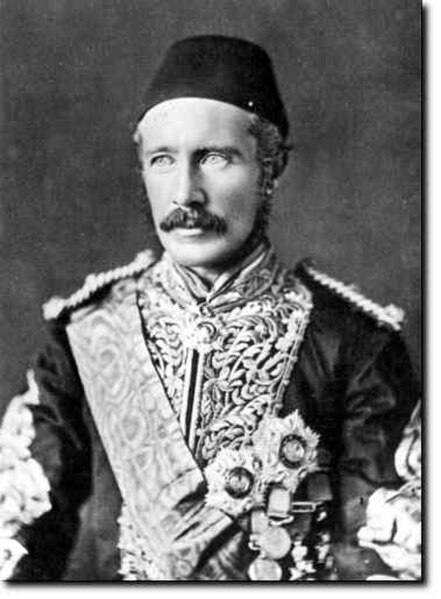Second Gladstone ministry
After campaigning against the foreign policy of the Beaconsfield ministry, William Gladstone led the Liberal Party to victory in the 1880 general election. The nominal leader of the Party, Lord Hartington, resigned in Gladstone's favour and Gladstone was appointed Prime Minister of the United Kingdom for a second time by Queen Victoria. He pursued a policy of parliamentary reform, but his government became wildly unpopular after the death of General Gordon in 1885. Gladstone was held responsible, and resigned, leaving the way free for the Conservatives under Lord Salisbury to form a government.
Gladstone (1879)
The Cabinet Council, 1883 by Théobald Chartran, published in Vanity Fair, 27 November 1883
Major-General Charles George Gordon CB, also known as Chinese Gordon, Gordon Pasha, and Gordon of Khartoum, was a British Army officer and administrator. He saw action in the Crimean War as an officer in the British Army. However, he made his military reputation in China, where he was placed in command of the "Ever Victorious Army", a force of Chinese soldiers led by European officers which was instrumental in putting down the Taiping Rebellion, regularly defeating much larger forces. For these accomplishments, he was given the nickname "Chinese Gordon" and honours from both the Emperor of China and the British.
Gordon between 1878 and 1885
Gordon, from a photograph taken shortly after the Crimea.
A scene of the Taiping Rebellion. Estimates of the war dead from the Taiping Rebellion range from 20 to 70 million to as high as 100 million.
General Gordon in Egyptian uniform.






